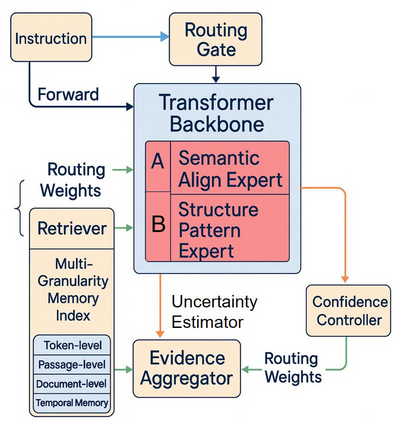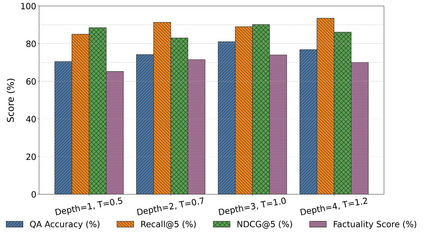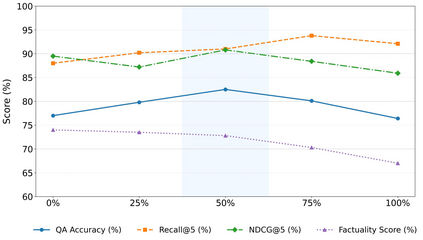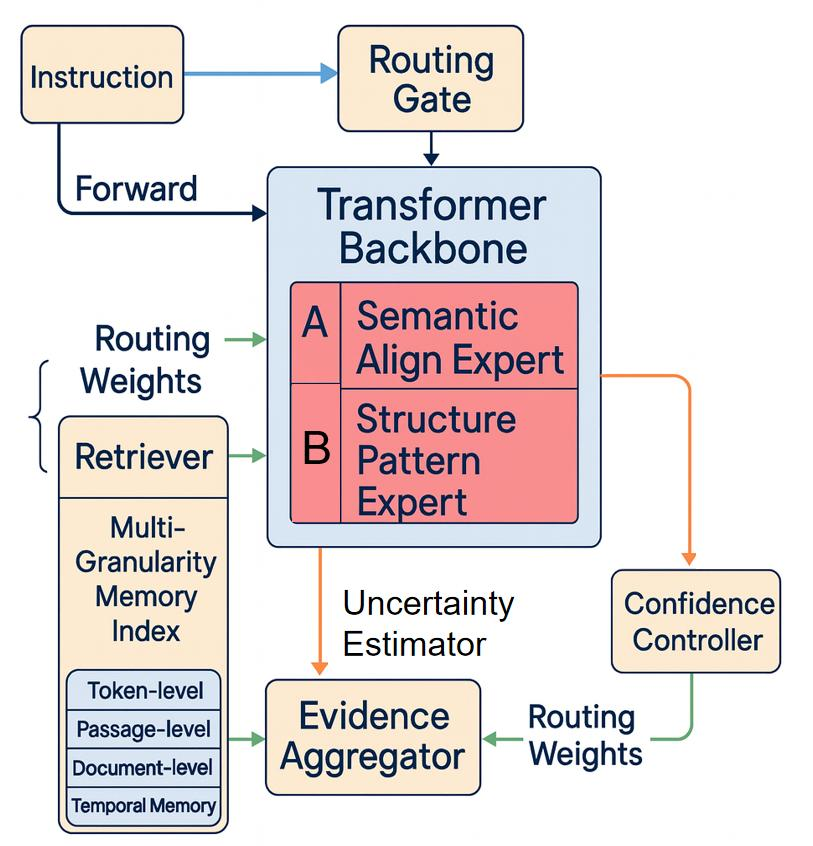This paper addresses the issues of insufficient coverage, unstable results, and limited reliability in retrieval-augmented generation under complex knowledge environments, and proposes a confidence control method that integrates multi-granularity memory indexing with uncertainty estimation. The method builds a hierarchical memory structure that divides knowledge representations into different levels of granularity, enabling dynamic indexing and retrieval from local details to global context, and thus establishing closer semantic connections between retrieval and generation. On this basis, an uncertainty estimation mechanism is introduced to explicitly constrain and filter low-confidence paths during the generation process, allowing the model to maintain information coverage while effectively suppressing noise and false content. The overall optimization objective consists of generation loss, entropy constraints, and variance regularization, forming a unified confidence control framework. In the experiments, comprehensive sensitivity tests and comparative analyses were designed, covering hyperparameters, environmental conditions, and data structures, to verify the stability and robustness of the proposed method across different scenarios. The results show that the method achieves superior performance over existing models in QA accuracy, retrieval recall, ranking quality, and factual consistency, demonstrating the effectiveness of combining multi-granularity indexing with confidence control. This study not only provides a new technical pathway for retrieval-augmented generation but also offers practical evidence for improving the reliability and controllability of large models in complex contexts.
翻译:暂无翻译







